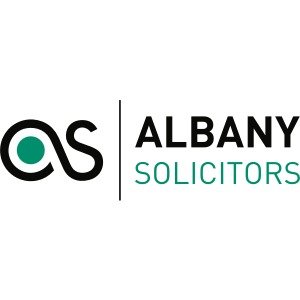Best Restructuring & Insolvency Lawyers in Bristol
Share your needs with us, get contacted by law firms.
Free. Takes 2 min.
List of the best lawyers in Bristol, United Kingdom
About Restructuring & Insolvency Law in Bristol, United Kingdom
Restructuring and insolvency law in Bristol, United Kingdom, addresses the legal procedures and frameworks governing the financial difficulties of individuals and businesses. This area of law deals with insolvency processes like bankruptcy for individuals and various company procedures such as administration, liquidations, and company voluntary arrangements (CVAs). Bristol, being a commercial hub in the South West, sees a significant number of restructuring and insolvency cases each year, ranging from small local businesses to large corporations.
The main purpose of restructuring and insolvency law is to help financially distressed individuals or businesses recover, where possible, or to fairly distribute assets among creditors if recovery is not an option. By following UK insolvency legislation and regulatory guidelines, professional advisers in Bristol aim to support businesses and individuals in navigating these challenging situations efficiently and lawfully.
Why You May Need a Lawyer
Seeking legal advice in restructuring and insolvency matters is crucial for a variety of reasons. Here are some common situations where a lawyer’s expertise is invaluable:
- You or your business are unable to pay debts as they fall due and risk facing insolvency.
- Creditors are threatening or have started legal action against you or your business to recover debts.
- You are considering company restructuring to avoid insolvency, such as refinancing, asset sales, or changing your company’s structure.
- You have received a statutory demand, winding up petition, or bankruptcy petition and need to understand your rights and options.
- Directors facing potential claims for wrongful trading, personal liability, or disqualification due to actions taken in the lead-up to insolvency.
- Employees or stakeholders of insolvent businesses seeking to protect their interests.
- Creditors looking to recover debts from insolvent individuals or companies.
A specialist restructuring and insolvency solicitor in Bristol can guide you through these scenarios, ensuring that you comply with the law and maximise your chances of achieving the best possible outcome.
Local Laws Overview
Restructuring and insolvency in Bristol operates under the national legal framework of England and Wales. However, local factors, economic climate, and industry mix in Bristol can also influence how cases are managed and resolved. Here are key legal aspects to consider:
- The Insolvency Act 1986 and related regulations form the core legislation governing personal and corporate insolvency.
- Procedures include company voluntary arrangements (CVAs), administrations, and liquidations for businesses, and bankruptcy or individual voluntary arrangements (IVAs) for individuals.
- Insolvency practitioners in Bristol must be licensed and regulated, typically by professional bodies such as the Insolvency Practitioners Association or the Institute of Chartered Accountants in England and Wales.
- Directors have strict legal duties, particularly when their company is insolvent, including acting in the best interests of creditors, not just shareholders.
- Local courts, including the Bristol Civil and Family Justice Centre, handle insolvency applications and disputes for individuals and businesses in the region.
- Some specific local business support services and government initiatives are available to help struggling companies in and around Bristol.
Frequently Asked Questions
What is the difference between insolvency and bankruptcy?
Insolvency is a general term meaning an individual or company cannot pay their debts when they are due. Bankruptcy is a specific legal process only available for individuals, not companies. For companies, the equivalent procedures are administration or liquidation.
What are my options if my company in Bristol is facing insolvency?
Your options may include seeking time to pay arrangements, agreeing a company voluntary arrangement (CVA) with creditors, entering administration (to rescue or sell the business), or voluntary liquidation. A solicitor can assess your best route based on your circumstances.
Can a director be held personally liable for company debts?
While company debts are usually limited to company assets, directors may be held personally liable if they are found to have engaged in wrongful or fraudulent trading, or breached their legal duties during insolvency.
What happens to employees if a business enters insolvency?
Employees may be made redundant, but they have rights to certain payments such as wages, holiday pay, and redundancy pay. These may be claimed from the National Insurance Fund if the company cannot pay.
How long does the insolvency process take in Bristol?
The timeframe varies depending on the type and complexity of the insolvency process. Bankruptcy for individuals can take about one year, while business liquidation or administration could take several months or longer.
Can I avoid bankruptcy or liquidation?
Yes, you may be able to avoid bankruptcy or liquidation by negotiating with creditors, entering a voluntary arrangement, or restructuring your debts and operations. Early professional advice is key.
What are my responsibilities if I am a company director and my business is in financial difficulty?
You must prioritise the interests of creditors, keep accurate records, avoid incurring further debts, and seek prompt professional advice on your options.
How does a company get placed into administration?
Administration is usually initiated by directors, company owners, or creditors. It involves appointing an administrator (a licensed insolvency practitioner) to take control of the business and attempt rescue or a better return for creditors.
Can I choose my own insolvency practitioner in Bristol?
Yes, you can select an insolvency practitioner who is licensed and regulated. It is advisable to engage somebody with local experience and a strong reputation in Bristol.
Do I have to attend court for insolvency proceedings?
Some insolvency processes require court applications, but many are handled outside of court. Whether you need to attend court will depend on the specifics of your situation, so legal advice can clarify what to expect.
Additional Resources
If you are seeking more information or assistance, the following resources can be helpful:
- The Insolvency Service: An executive agency of the Department for Business and Trade, provides guidance, redundancy payments, and investigation services.
- Citizens Advice Bristol: Offers free confidential advice on personal and corporate insolvency matters.
- ICAEW and Insolvency Practitioners Association: Lists of licensed insolvency practitioners operating in the Bristol area.
- Business West and Bristol City Council: Local business support and advice services that can provide additional guidance or referrals to specialist lawyers and practitioners.
Next Steps
If you believe you need legal assistance with restructuring or insolvency matters in Bristol:
- Seek a no-obligation initial consultation with a local specialist solicitor to understand your options and rights.
- Gather all relevant financial information and documentation, such as debt schedules, creditor correspondence, and company records.
- Consider engaging an insolvency practitioner if you require a formal process, but always seek legal advice first to fully understand your risks and responsibilities.
- Act promptly - timely intervention improves your prospects of resolving difficulties effectively and may help you avoid insolvency altogether.
By working with local professionals, you can navigate financial distress with clarity and confidence, giving yourself or your business the best chance of a positive outcome.
Lawzana helps you find the best lawyers and law firms in Bristol through a curated and pre-screened list of qualified legal professionals. Our platform offers rankings and detailed profiles of attorneys and law firms, allowing you to compare based on practice areas, including Restructuring & Insolvency, experience, and client feedback.
Each profile includes a description of the firm's areas of practice, client reviews, team members and partners, year of establishment, spoken languages, office locations, contact information, social media presence, and any published articles or resources. Most firms on our platform speak English and are experienced in both local and international legal matters.
Get a quote from top-rated law firms in Bristol, United Kingdom — quickly, securely, and without unnecessary hassle.
Disclaimer:
The information provided on this page is for general informational purposes only and does not constitute legal advice. While we strive to ensure the accuracy and relevance of the content, legal information may change over time, and interpretations of the law can vary. You should always consult with a qualified legal professional for advice specific to your situation.
We disclaim all liability for actions taken or not taken based on the content of this page. If you believe any information is incorrect or outdated, please contact us, and we will review and update it where appropriate.













